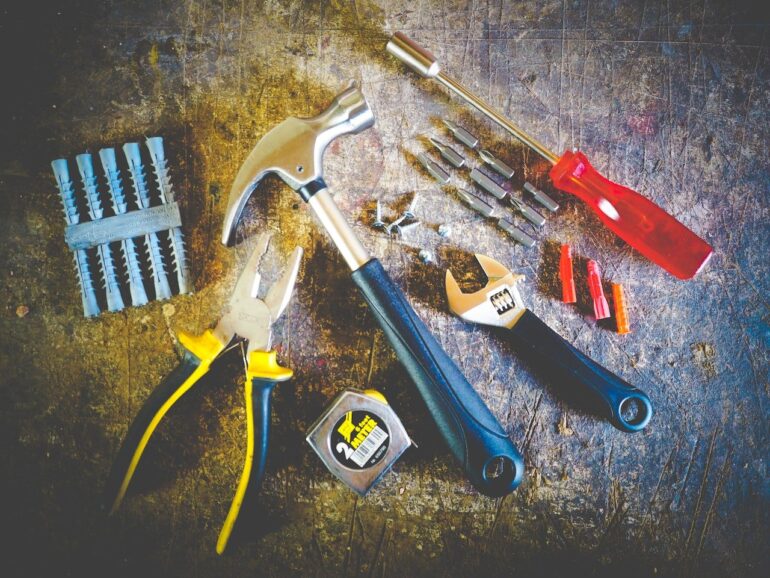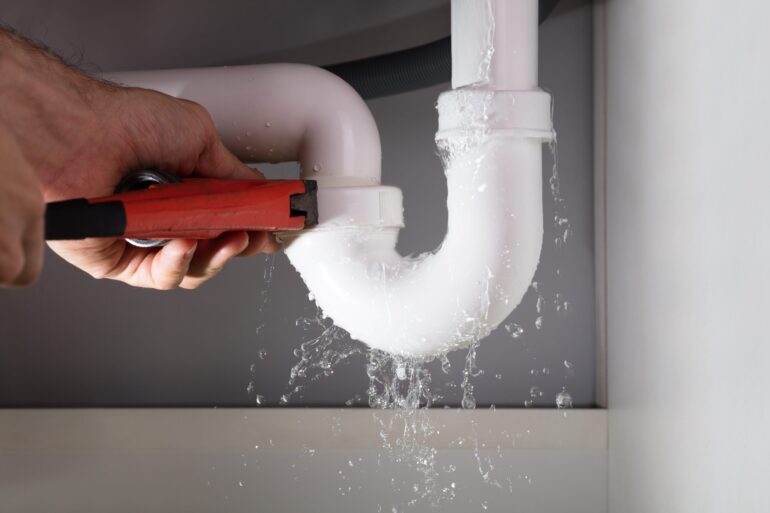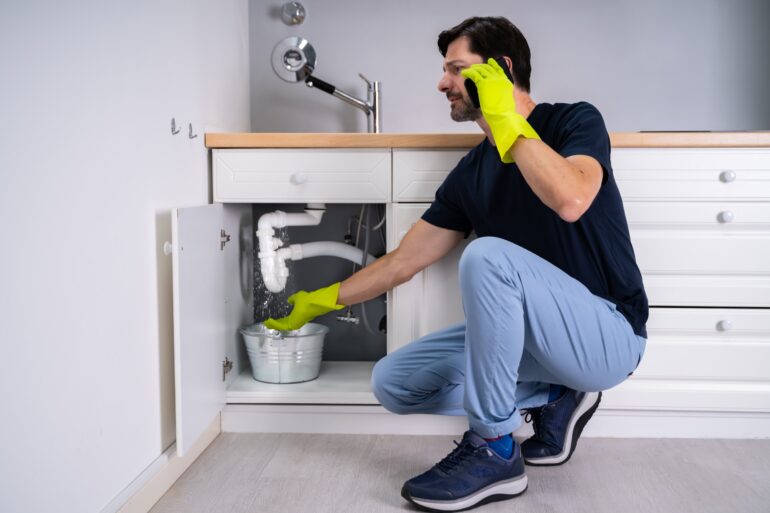Building a strong skill set in DIY plumbing repairs can contribute significantly to homeowners’ independence and may result in substantial financial savings. However, the thrill that comes with managing these repairs oneself can swiftly turn to frustration when unforeseen complexities arise. This comprehensive guide is designed to equip homeowners with the knowledge to navigate the labyrinth of DIY plumbing fixes, while emphasising the importance of recognizing when professional help is necessary.
Understanding Basic Plumbing System
To many, a home’s plumbing system may appear to be a convoluted net of pipes and fittings. Yet, when stripped down to its fundamental elements, it is based on the principles of water supply, waste removal, and venting. Familiarising yourself with these three critical sections can significantly ease tackling DIY fixes.
The most common components of a home plumbing system include water pipes, faucets, valves, and the drainage system, and each plays a specific role in the overall functioning of your home. Water pipes ensure the smooth flow of water, faucets control the release of water, valves regulate the flow, and the drainage system facilitates waste removal.
These various components aren’t invulnerable, though, and can experience a variety of problems. Silent leaks in valves, slow drainage in pipes, and malfunctioning faucets are just some sneak peek into what might go awry in these components. Therefore, knowledge of these components isn’t merely useful, but essential for effective DIY plumbing fixes.
Essential Plumbing Tools for DIY Fixes

Equipment is king in the world of DIY plumbing. To face these challenges head-on, homeowners should accrue a set of tools such as wrenches (including pipe, basin, and adjustable wrenches), plungers, pliers, a drain snake, and a toilet auger. Nevertheless, potential DIY plumbers need to consider the return on investing in these tools.
While a wrench can prove instrumental in tightening or loosening fixtures, plungers are the first line of defence against clogged toilets and sinks. If a plunger can’t resolve a blockage, a drain snake might come in handy. A visit to your local hardware store or perusing online marketplaces can help you find these tools at a pocket-friendly price..
Easy DIY Plumbing Fixes for Common Issues
Equipped with a basic understanding of the plumbing system and a prepared toolbox, homeowners are primed to tackle everyday plumbing issues like leaky faucets, clogged drains, and running toilets. Different issues require unique solutions – the tight twist of a wrench here, the rightly plunged pump there could bring all the difference.
What’s crucial is a clear understanding and approach when handling these issues. If a problem seems enveloped in uncertainty, when causes or solutions aren’t obvious, it’s best to back away and seek expert help. As an example, water hammer issues often necessitate a plumber’s help in identifying and fixing them.
Preventive Measures and Regular Maintenance Tips

The adage “a stitch in time saves nine” is entirely fitting when considering plumbing maintenance. Proactive maintenance strategies often present a more effective approach than reactive measures. Regular inspections of your system can optimise its efficiency and nip potential issues in the bud before they intensify into more significant problems.
Carrying out preventive measures, such as looking out for leaks, cleaning drains periodically, and monitoring water pressure, can improve the lifespan of your plumbing system. Over time, these simple routines contribute to mitigating potential plumbing emergencies and prove beneficial from a financial standpoint.
When to Call a Professional Plumber

Certain circumstances will require you to seek the assistance of a licensed plumber. Plumbing complexities like severe water hammer issues, pipe replacements, or the installation of new fixtures are instances where professional intervention proves invaluable. root cause of a water hammer and implementing the most effective solution can save you time, money, and frustration in the long run.
While picking a reliable plumber, take into account their industry experience, qualifications, and ask for clear, upfront pricing to help you make the right choice. Moreover, it’s beneficial to understand the warranties and insurance policies offered by professional plumbers. Ignoring the need for professional help in certain situations could lead to severe damage, which often incurs higher costs than a professional’s call-out fee.
Conclus ion
Practising DIY plumbing involves striking a careful balance. It’s about learning when to save a buck by patching up a small issue today, and when to invest in professional help to keep from spending hundreds later. In addition to the financial savings, homeowners can also gain a certain sense of satisfaction and accomplishment from successfully carrying out minor plumbing repairs.
However, it’s equally important to recognize when the skills and expertise of a professional plumber are required. While DIY plumbing can effectively rectify minor issues, complex problems like severe water hammer demand a professional touch. Having the contact of a reliable, qualified plumber in your back pocket gives homeowners peace of mind, knowing that whatever plumbing issues arise, they can be efficiently and effectively handled.
